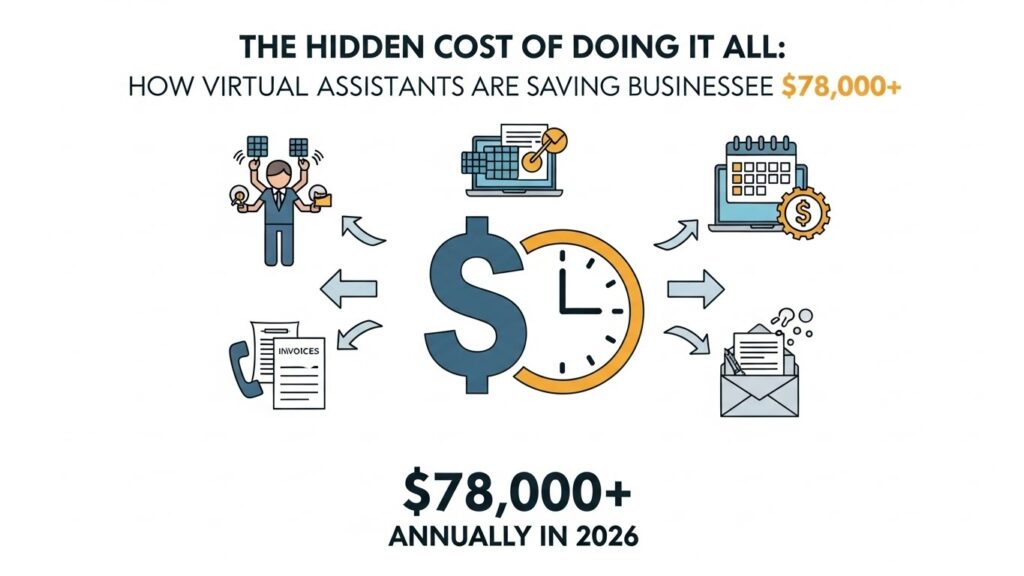As technology is transitioning every industry, and the environment of the real estate sector is also changing, agents are evolving their operating models, transaction management, client communications, and business development rapidly in this evolving environment with technology. Further, one particular shift of particular importance is the emergence of virtual collaboration.
Virtual collaboration provides agents with options; previously, the only option was to conduct their business face-to-face, paper-based, and agent-independent. Ultimately, what it takes to be successful as a leading real estate professional has changed quite a bit from hard work. Successful agents build smart systems, delegate strategically, and have greater agility, and virtual teams can make it happen so that agents can embrace other areas.
This blog introduces how virtual teams are changing real estate operations and dispels the myth that this is just a trend and that it will be part of the real estate future. With the rise of virtual real estate operations, the traditional structure of brokerage offices and agent workflows is being redefined.
1. Why Virtual Teams Are the Future of Real Estate
The role of the real estate agent has exploded in complexity. No longer just a salesperson, today’s agent must be a marketer, a tech expert, a negotiator, a transaction coordinator, and a content creator, all at once. This “do-it-all” model simply doesn’t scale.
In the near future, real estate will be divided into two types of agents:
- Those who embrace delegation, technology, and virtual teams
- And those who struggle to keep up and burn out
Modern real estate businesses are now operating with virtual professionals as the backbone of their operation. Virtual Assistants are remote members of an expanded team; they have skill, training, and expertise in performing critical functions. They allow agents to focus on their overall business, on what only they can do: relationship building, closing deals, and growing their brand.
This is no longer optional. Agents that build a virtual team come from the perspective of a future-proofed business. Agents that do not will lag behind in speed, service, and outcomes. Virtual real estate operations provide a scalable model for agents who want to compete at a higher level.

2. What Virtual Teams Will Soon Handle
Virtual support has already moved far beyond data entry and admin. In the next wave of real estate, nearly every non-client-facing task will be handled virtually and more effectively.
Here’s a glimpse of what your future real estate operations could look like and it’s already begun.
- Inbox & Calendar Management: Your VA responds to routine inquiries, flags priority leads, books appointments, all before your day starts.
- CRM & Lead Nurturing: Follow-ups are timely, strategic, and automated. No leads fall through the cracks.
- Transaction Coordination: From listing docs to closing day, every step is handled by a skilled virtual coordinator, keeping you compliant and stress-free.
- Social Media Management: Content is designed, scheduled, and optimized while you focus on creating closings, not captions.
- MLS & Listing Input: New listings are posted accurately and quickly. Changes? Handled in real-time.
- Market Research & Reports: You get up-to-date local comps and analytics, delivered before your next client meeting.
- Email Campaigns & Automation: Your brand stays in front of leads and past clients without lifting a finger.
In the very near future, clients will expect this level of speed, accuracy, and professionalism. And only agents powered by virtual teams will be able to deliver it consistently. The demand for virtual real estate assistants will continue to rise.
Also Read: 5 Powerful Reasons Entrepreneurs Should Hire a Virtual Assistant Who Actually Executes
3. A New Era of Real Estate Operations: Leaner, Smarter, Virtual-First
The future real estate office won’t be an old-fashioned clump of desks, ringing phones and a paper-stacked copy machine. Instead, welcome to the era of a laptop, some pretty powerful apps and a synchronized virtual team with people working across borders and time zones. We are entering a virtual-first era, where real estate businesses are becoming leaner, tech-enabled by design. The reality is that modern real estate businesses and operations are unobstructed by geography, office hours, and a physical location. It’s about efficiency, agility, intelligent delegation and a whole new level of cooperation.
What does that mean in real terms?
- Agents will no longer rely on bulky office support teams. Instead, they will operate remotely professionals who specialize in marketing, operations, data, and client care hired based on skill, not location.
- Brokerages will transition away from a traditional office and no longer have a physical location, operating in a distributed cloud-based workspace, where every task involved in completing the transaction virtually.
- Client service will improve. Why? Because virtual teams facilitate around-the-clock responsiveness, better documentation, faster transaction turnaround time and more capacity to personalize the client experience.
- Costs will shrink. Productivity will increase. And the agents who build these streamlined models will scale faster than ever. Embracing virtual real estate operations becomes a competitive edge.
In this new model, being “busy” is no longer a badge of honor. Being efficient, automated, and supported is the real power move.
This isn’t a shift that’s coming; it has already started. Forward-looking agents have already discarded antiquated systems and created next-gen businesses that don’t rely on cost to grow. They are creating operations that run much easier, faster and smarter with the help of specialized virtual teams at every stage.
4. Building a Virtual Team: From Extra Help to Essential Infrastructure
If you’ve never worked with a virtual team before, this is your moment to make the leap not as a trend follower, but as a strategic leader. The most successful agents in the coming years will be those who treat their virtual team as mission-critical infrastructure, not just extra hands. Here’s how to begin building yours:
- Audit Your Workload: Start by determining exactly where your time is going. Identify repetitive time-consuming tasks that you do not need to do yourself, such as scheduling, data entry, and/or content posting. These will more than likely be your best candidates for delegation.
- Define the Roles: Once you’ve mapped out your pain points , translate them into clear roles. You may need a general virtual assistant for admin tasks, a transaction coordinator for paperwork and deadlines, or a marketing assistant to manage your online presence, or even all three, depending on your growth stage.
- Choose a Source: You can post on freelance platforms or go straight to real estate-focused staffing agencies like Aurora Nexus, where you’ll find trained professionals familiar with your tools and workflows.
- Create a System: To set your team up for long-term success, build a clear and repeatable system. This includes structured onboarding, daily or weekly check-ins, standard operating procedures (SOPs) and project management tools that keep everyone aligned and accountable.
- Scale Intelligently: Build your team slowly. After you’ve built trust and rhythm, you’ll be thinking about how you did business before developing your team.
Here’s the truth: In the real estate businesses of tomorrow, virtual teams won’t be “support.” They’ll be the core of virtual real estate operations.

Conclusion: Virtual Teams Aren’t a Shortcut, They’re the Standard
The successful realtors in the modern world aren’t the ones who are the busiest, but the ones who are the smartest. A system that works while you sleep, follows up with your clients faster than you can type and organizes your business better than you could all by yourself. The reality is that the days of trying to do everything yourself are over. Not when buyers and sellers expect you to respond instantly. Not when the market is moving so fast. Not when your competitors are already running their businesses lean now and leveraging a virtual first approach.
Virtual teams are not a luxury, they’re the new normal. They’re your secret weapon. Your competitive advantage. They are how new agents avoid burnout. Affordable Real estate virtual assistant services will be at the heart of every high-performance team. If you’re hoping to thrive in the future of real estate, it’s time to adapt! Because in the future you don’t grow alone, you grow with a virtual team behind you.
Let Aurora Nexus assist you in identifying the right professionals who will help you streamline your operations, enhance your brand and increase your productivity. Contact us today to discover how we can match you with trained, real estate-savvy virtual assistants that fit your unique business needs.
Frequently Asked Question
[rank_math_rich_snippet id=”s-416b9e9b-d435-41c5-9677-48a974979ff6″]





One Response